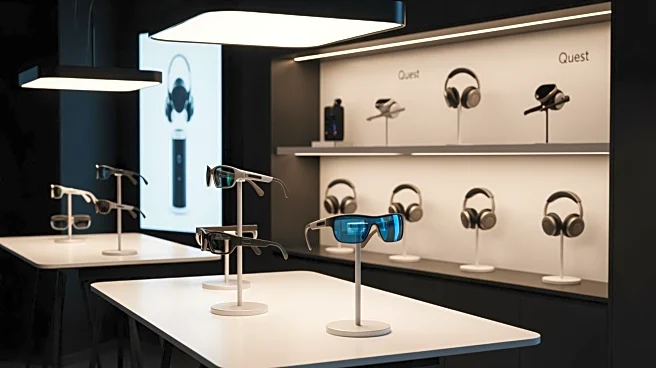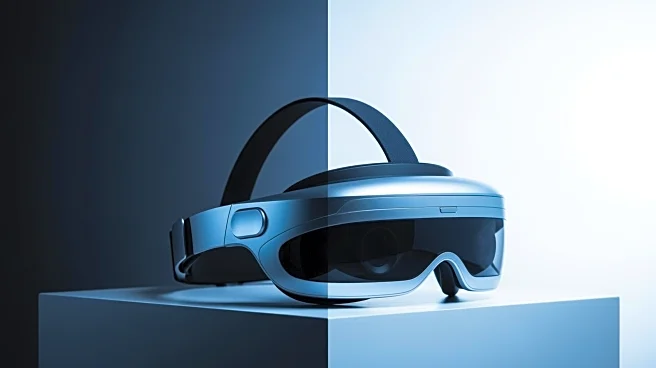What's Happening?
Meta has launched a new retail store named Meta Lab in Los Angeles, marking its second permanent store following the Burlingame location. Situated on Melrose Avenue, the store spans 20,000 square feet
and is designed to showcase Meta's hardware, including smart glasses and Quest headsets. The store features products like Ray-Ban Meta Gen 2, Oakley Meta HSTN, Oakley Meta Vanguard, and Quest 3. In addition to the LA store, Meta is opening temporary pop-up spaces in New York and Las Vegas to demo its smart glasses. These pop-ups are part of Meta's strategy to expand its retail footprint and enhance consumer engagement with its augmented reality and virtual reality products.
Why It's Important?
The opening of Meta Lab in Los Angeles signifies Meta's commitment to expanding its physical retail presence, which could enhance consumer interaction with its products. By providing hands-on experiences with smart glasses and VR headsets, Meta aims to increase consumer adoption and drive sales. This move is crucial as it aligns with the growing trend of integrating augmented reality into everyday life, potentially influencing consumer technology preferences and market dynamics. The expansion into major cities like New York and Las Vegas further indicates Meta's strategic approach to capturing a broader audience and establishing itself as a leader in the AR/VR market.
What's Next?
Meta's expansion into physical retail spaces suggests a potential increase in consumer engagement and sales of its AR/VR products. The company may continue to open more stores and pop-up locations to reach new markets and demographics. As Meta enhances its retail strategy, it could face competition from other tech giants entering the AR/VR space, prompting further innovation and marketing efforts. Additionally, Meta's partnership with EssilorLuxottica could lead to more collaborative ventures, expanding the availability and variety of smart glasses and VR headsets.
Beyond the Headlines
The establishment of Meta Lab and pop-up stores reflects a broader trend of tech companies investing in physical retail spaces to complement their online presence. This strategy not only boosts brand visibility but also provides consumers with tangible experiences that can drive product adoption. As AR/VR technology becomes more integrated into daily life, ethical considerations regarding privacy and data security may arise, necessitating transparent communication and responsible practices from companies like Meta.









